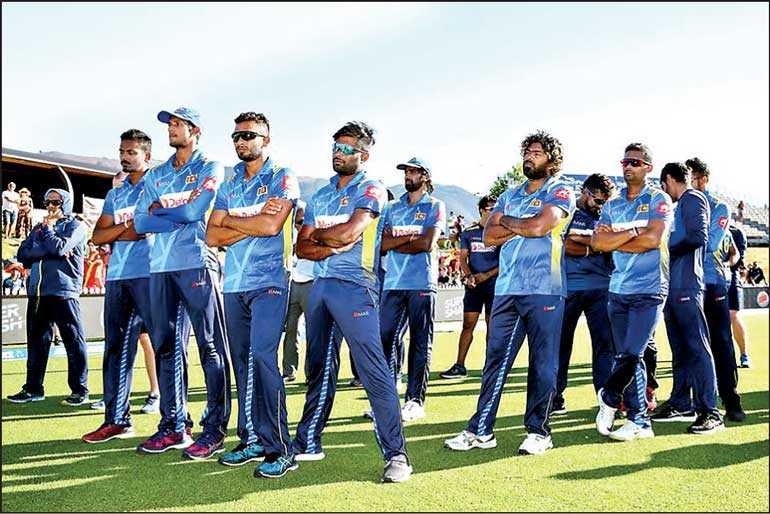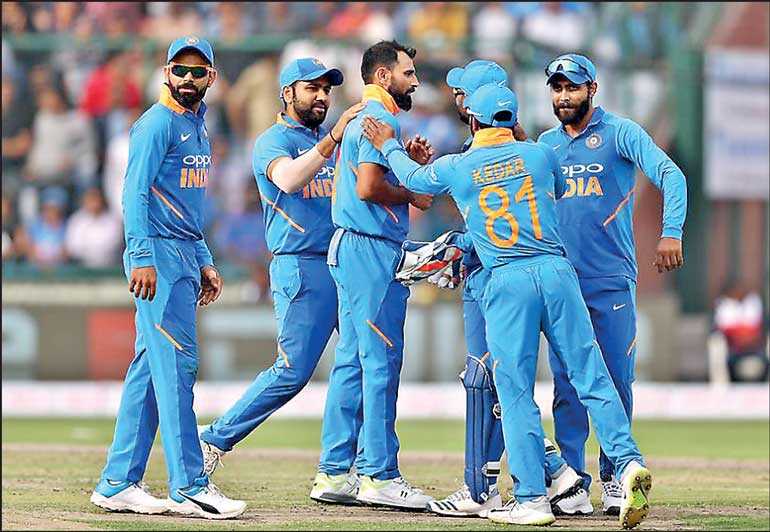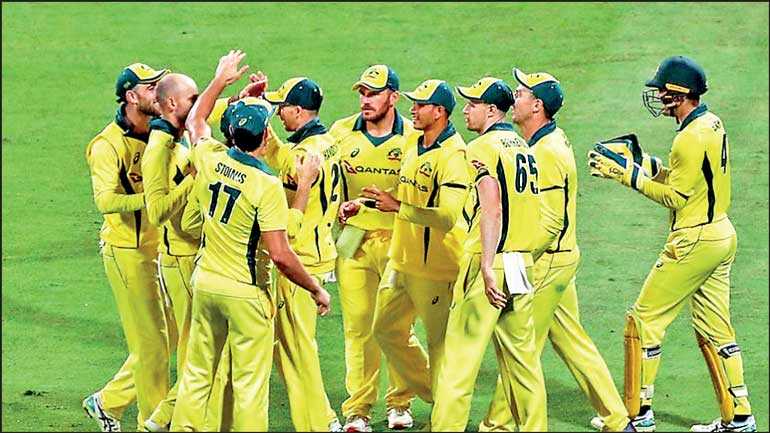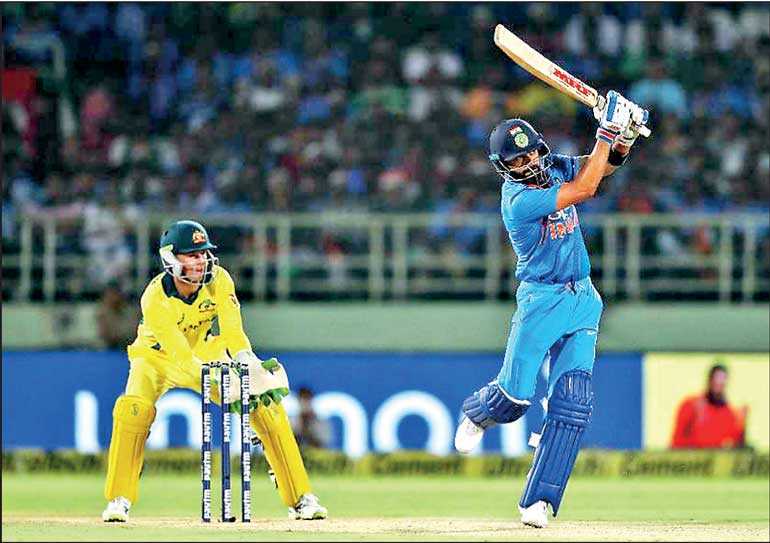Tuesday Feb 17, 2026
Tuesday Feb 17, 2026
Friday, 3 May 2019 00:00 - - {{hitsCtrl.values.hits}}




Oldest squad
While there isn’t much clarity on how the side will line up, Sri Lanka’s contingent of experienced older figures could be vital in ushering them past the group stages. With an average age of 29.9, they are the oldest squad competing for the trophy in this edition. Seasoned pacers Lasith Malinga, 35, and Suranga Lakmal, 32, look likely to spearhead the bowling attack. Former captain Angelo Mathews, 31, was destined for a return after the side’s poor 50-over form in the absence of the talismanic all-rounder, and there’s a call-up for Jeevan Mendis too. The 36-year-old has not played ODI cricket since 2015, but an extra wise head in the dressing room might be key to revitalising fortunes for the 1996 winners.
South Africa, and hosts England aren’t too far behind, with average squad ages of 29.5, while Australia are just marginally younger at 29.4. All three nations possess more settled sides that have achieved good things of late in the ODI format, with a good balance of sprightly young stars alongside wily veterans. The Proteas possess the tournament’s oldest player, 40-year-old leg-spinner Imran Tahir, whose exuberance and manic celebrations are not quite reflective of his age.
Youngest squad
The youngest squad at this summer’s Cricket World Cup is that of Pakistan, where the average age is 27.3, followed closely by Afghanistan (27.4). Pakistan look set to unleash promising 19-year-old quicks Shaheen Shah Afridi and Mohammad Hasnain on the world’s biggest stage, while Afghanistan will look to exploit their youthful options with the two-pronged spin attack of 20-year-old Rashid Khan, the No.3-ranked bowler on the MRF Tyres ICC ODI Bowling Rankings, and fellow tweaker Mujeeb Ur Rahman, who at 18, is the youngest player at the tournament.
Most capped
Although age might signal ample cricketing experience, it needn’t necessarily have come at the international level. India have the fourth youngest side in the tournament, but also the most capped squad, with a combined total of 1573 appearances, eclipsing the second-most capped team, Bangladesh, by a margin of 274. Among India’s seniors are MS Dhoni, who has played 341 ODIs, and has still remarkably managed to maintain a batting average of 50.72. Virat Kohli, the captain and No.1-ranked batsman on the MRF Tyres ICC ODI Batting Rankings, has 227 appearances to his name, and Rohit Sharma, ranked No.2, has 206 caps, forming a frightening combination.
Bangladesh, meanwhile, will look to draw on their experience as they push for their first World Cup title. Mashrafe Mortaza (205 caps), Shakib Al Hasan (195 caps), Mushfiqur Rahim (201 caps), and Tamim Iqbal (189 caps), will know that this is probably their final shot at achieving greatness together. Mushfiqur recently said that “having most experienced players in the team, this is the strongest World Cup team that Bangladesh have ever had,” and he might just be right.
Most hundreds
India have little to no competition here. With a team tally of 90, and a whopping 41 of those belonging to Kohli, India’s capacity for mammoth innings will certainly be of concern to their opposition. Rohit (22), Shikhar Dhawan (16), and Dhoni (10), also have multiple tons under their belts, but over-reliance on these veterans could be a pitfall.
Although New Zealand, South Africa and India top England with their tally of centuries, it is the host nation that boasts the most centurions. Seven England players have reached three figures in ODIs, compared to five each for India, South Africa and New Zealand, which is an indication of their strong batting depth.
Afghanistan and Sri Lanka are both lacking in the century department, with 12 apiece; West Indies’ Chris Gayle alone has more three-figure scores (25) in ODIs than the two nations combined. That being said, Afghanistan only played their first ODI in 2009.
Most wickets
Taking wickets on hard, high-scoring tracks can be difficult, but English conditions might just give hope to those who are more skilled at getting the ball to nip around, and we have seen many a swing bowler achieve great successes on English shores. Bangladesh and Sri Lanka’s squads sit atop the leaderboards for ODI wickets, with 829 and 815 respectively, and the onus will fall on the side’s veteran seamers. Mortaza, with 259 scalps in the format, will lead the line for Bangladesh, whilst Malinga, who has the most ODI wickets among all players in the tournament, with 322 scalps, still carries much of Sri Lanka’s bowling weight on his 35-year-old shoulders.
Aaron Finch’s Australia have the least ODI wickets, with 495. Left-arm pacer Mitchell Starc has 145 of those, while fellow fast bowlers Jhye Richardson, Nathan Coulter-Nile and Jason Behrendorff are all relatively inexperienced at the top level. Nathan Lyon is no stranger to the international arena, but exciting young leg-spinner Adam Zampa might be primed to undertake the Aussies’ main spinning role.